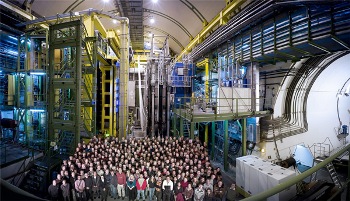The latest results of the LHC experiment conducted were communicated in the Lepton Photon conference in Mumbai, India.
 LHC Experiment
LHC Experiment
One of the main aims of the LHC scientific program is to confirm the existence or non-existence of the Higgs boson particle. ATLAS and CMS have already stated with a 95% confidence that Higgs particles are not present in the mass region between 145 and 466 GeV.
Along with the results from the Higgs experiment, several other outcomes from the LHC experiment in different areas of Physics will also be discussed. The excellent work of the LHC experiment experts and the worldwide computing grid have ensured that several present analyses use around two times the data sample provided at the previous particle physics conference held in July.
CERN’s research director, Sergio Bertolucci states that this is an amazing period for particle physics with definite possibility of new results of the LHC experiments within the future 12-months. The LHC experiments will reveal whether or not Higgs exists, and if Higgs does not exist, then the outcome will lead to a new theory in physics.
The standard Higgs model mechanism is one method in which basic particles can obtain their masses. Higgs mechanism states that space contains a Higgs field and basic particles interact with Higgs field in such a way that the particles with more mass interact strongly and particles with less mass interact weakly.
The ATLAS and CMS emphasised the possibility of existence of a Higgs signal during the European Physical Society’s High Energy Physics Conference, held in France in July, and the data collected could be better described through statistical variations. As more data is analysed, the importance of those statistical variations has slightly come down.
Atlas spokesman, Fabiola Gianotti stated that they have gathered a large amount of new data over the previous month that has enabled them to discover new insights into the standard Higgs model as well as in other Physics areas.
The Lepton-Photon conference continues till August 27. After the conference is over, the recent results of LHC experiments can be viewed through CERN’s website.